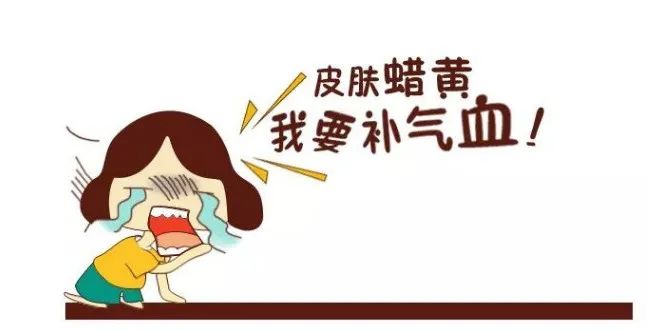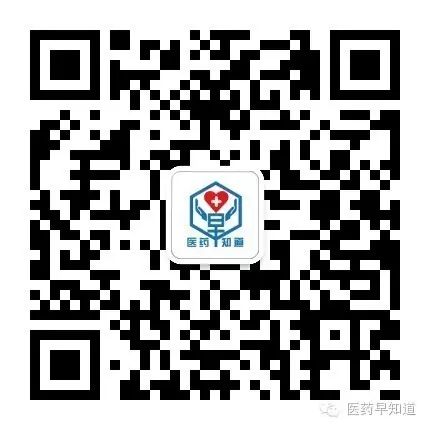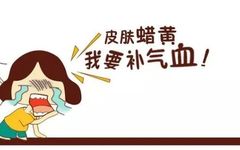[Symptoms of Qi Deficiency and Blood Deficiency]
Qi Deficiency
Often caused by insufficient internal generation or excessive consumption. Commonly seen in those with congenital deficiencies, malnutrition, elderly and weak individuals, or those who are overly fatigued. Main symptoms include shortness of breath, lack of energy, low voice, shortness of breath upon exertion, easy sweating, dizziness, palpitations, pale yellow complexion, poor appetite, signs of internal heat, spontaneous sweating, prolapse of the rectum, uterine prolapse, pale and swollen tongue with tooth marks on the sides, and weak pulse, indicating functional decline without necessarily indicating disease.
Blood Deficiency
This is a pathological phenomenon of insufficient yin blood in the body, which can be caused by excessive blood loss or prolonged illness. Main symptoms include pale yellow complexion, pale lips and nails, dizziness, fatigue, blurred vision, palpitations, insomnia with vivid dreams, dry stools, irregular menstrual cycles in women, light menstrual flow, pale tongue, thin and slippery coating, weak and thin pulse, emaciation, and dry eyes.
Combined Qi and Blood Deficiency
Generally, those with Qi deficiency will also exhibit symptoms of blood deficiency. Qi and blood deficiency commonly occurs in conditions such as anemia, leukopenia, thrombocytopenia, after significant blood loss, or in women with excessive menstruation. Main symptoms include susceptibility to illness, fear of wind and cold, easy sweating, fatigue, reluctance to speak, low voice, pale or sallow complexion, easy startle response, palpitations, shallow sleep or insomnia, causing various inconveniences in work and life. Additionally, the nourishing effect of Qi and blood on the meridians, muscles, and skin is weakened, often leading to numbness in limbs, dry skin, and itching.
Skin
The meridians transport Qi and blood to the skin; well-nourished skin appears rosy. When Qi and blood circulate normally, the skin is sensitive. If there is insufficient generation or obstruction of Qi and blood, the skin may appear dull or sallow, dry, and exhibit abnormal sensations.
Eyes
The condition of the eyes is primarily assessed by their color and clarity. Bright and clear eyes indicate sufficient Qi and blood; yellowish or cloudy whites of the eyes suggest liver Qi and blood deficiency; large eye bags indicate spleen deficiency; dry eyes and heavy eyelids also represent local Qi and blood deficiency; dull and lifeless eyes are signs of Qi and blood exhaustion.
Hair
The “Huangdi Neijing” records the hair growth process: at around seven or eight years old, due to abundant kidney Qi, hair grows; around thirty, due to strong kidney Qi, hair grows abundantly; around forty, due to declining Qi and blood, hair begins to fall; after fifty, due to weakened kidney Qi, hair begins to turn white. This indicates that hair growth is nourished by Qi and blood; abundant Qi and blood lead to normal hair growth, while insufficient Qi and blood can cause hair to turn white and fall out easily.
Hands
When Qi and blood are sufficient, the hands are warm; however, if the palms are hot, sweaty, or cold, it indicates Qi and blood deficiency. In cases of Qi and blood deficiency, the fingertips may appear flat, weak, or thin.

[Common Medications for Qi and Blood Deficiency]
General Treatment
Since Qi and blood mutually nourish each other, pure Qi deficiency or blood deficiency is rare. Therefore, in clinical practice, it is common to supplement both Qi and blood. Customers with Qi and blood deficiency are also quite common in stores.
General Medication Treatment
1. Dingkun Dan (Dingkun Pill)
Nourishes Qi and blood, regulates menstruation, and relieves stagnation. Used for Qi and blood deficiency, and menstrual irregularities due to Qi stagnation and blood stasis.
2. Shiquan Dabu Wan (Ten Complete Great Supplement Pills)
Warms and supplements Qi and blood. Used for Qi and blood deficiency, pale complexion, shortness of breath, palpitations, dizziness, spontaneous sweating, fatigue, cold extremities, and heavy menstrual flow.
3. Renshen Yangrong Wan (Ginseng Nourishing Pills)
Warms and supplements Qi and blood. Used for heart and spleen deficiency, Qi and blood deficiency, emaciation, fatigue, poor appetite, loose stools, and post-illness weakness.
4. Ejiao Buxue Granules (Donkey-hide Gel Blood Supplement Granules)
Benefits Qi and nourishes blood. Used for weakness after prolonged illness, Qi deficiency, and blood loss.
5. Lu Jiao Jiao (Deer Antler Glue)
Warms and supplements liver and kidney, benefits essence and nourishes blood. Used for blood deficiency with dizziness, coldness in the lower back and knees, and emaciation.
6. Yiqi Yangxue Oral Liquid (Qi and Blood Nourishing Oral Liquid)
Benefits Qi and nourishes blood for symptoms of shortness of breath, palpitations, pale complexion, and fatigue due to Qi and blood deficiency.
7. Shengmai Yin (Generate Pulse Decoction)
Benefits Qi, nourishes yin, and generates fluids for Qi and yin deficiency, palpitations, and shortness of breath.
8. Buzhong Yiqi Wan (Middle Supplement and Qi Pill)
Supplements the middle and benefits Qi, raises yang for fatigue, poor appetite, abdominal distension, loose stools, and rectal prolapse due to spleen and stomach deficiency.
[Combined Medication Plans]
1. Yupingfeng Granules + Colostrum Tablets
Yupingfeng is a key medicine for treating surface deficiency and spontaneous sweating, suitable for those who are prone to colds. It is applicable for surface deficiency with spontaneous sweating, fear of wind, pale complexion, or those who are weak and susceptible to wind pathogens. Colostrum contains a large amount of immunoglobulin, which can enhance the body’s resistance to disease. The combination of these two products can better resist disease invasion.
2. Ejiao Buxue Oral Liquid + Taurine Amino Acid Tablets
Ejiao has significant anti-anemia and immune-boosting effects, combined with Huangqi (Astragalus), Shudi (Rehmannia), Baizhu (Atractylodes), Dangshen (Codonopsis), and Gouqizi (Goji Berries) for a good Qi and blood supplement effect. Amino acids are the basic components of human tissue cells, essential for maintaining life activities, and are easily absorbed. Taking them together can enhance immunity.
3. Iron Supplements + Yiqi Yangxue Oral Liquid (or Ejiao Buxue Granules)
Insufficient generation of Qi and blood or blood loss can easily lead to Qi and blood deficiency, which also aligns with the Western medical concept of anemia. Therefore, while taking iron supplements to correct anemia, one can also take TCM formulations for Qi and blood deficiency to achieve better efficacy.
4. Sanqi Powder + Danshen (Salvia Miltiorrhiza) + Xiyangshen (American Ginseng)
Can prevent and improve arteriosclerosis and cardiovascular diseases.
5. Zhi Shou Wu (Polygonum Multiflorum) + Jue Ming Zi (Cassia Seed)
Suitable for those with low immunity, constipation, hypertension, arteriosclerosis, and cardiovascular diseases.
6. Huangqi (Astragalus) + Shanyao (Chinese Yam) + Taizishen (Pseudostellaria)
Suitable for those with habitual colds, fatigue, and spontaneous sweating.
[Foods that Nourish Qi and Blood]
1. Underground Apple – Potato
Enters the spleen, stomach, and intestines: harmonizes the stomach, strengthens the spleen, and promotes bowel movements.
2. Food of the Immortals – Chinese Yam
Connects the heavens and earth’s Qi, neither hot nor dry, extremely mild in nature, especially suitable for those with Qi deficiency.
3. Plant Queen – Shiitake Mushroom
Also known as “meat among vegetables”.
4. Holy Warming Supplement – Millet
Nourishes yin, strengthens yang, harmonizes the middle, benefits the stomach, and detoxifies.
5. Second Bread – Sweet Potato
Nourishes the middle and blood, warms the stomach, generates fluids, and promotes bowel movements.
6. Health Elixir – Honey
Nourishes the spleen and stomach, benefits lung Qi, and promotes bowel movements.
7. Winter Grain – Glutinous Rice
Known as “grain that nourishes the spleen and stomach, benefits lung Qi”, warms the stomach and nourishes Qi, making it a favorite winter food. It is suitable for those with spleen and lung cold deficiency, and there is a custom of making Laba congee. However, glutinous rice is sticky, making it difficult for the spleen and stomach to process, so it should not be consumed in excess at once. It is best prepared as a thin porridge for easier digestion and better nourishment of stomach Qi.
8. Blood Nourishing Angel – Black Sesame
Enters the liver, kidney, lung, and spleen meridians, nourishes blood, brightens the eyes, generates fluids, and benefits the liver and hair.
9. Crown of Fruits – Red Dates
Nourishes the stomach, strengthens the spleen, nourishes blood, calms the spirit, moistens the lungs, harmonizes the nutritive and defensive Qi, opens the orifices, and assists the twelve meridians. For good health, eat three dates a day.
10. Blood Nourishing Root – Lotus Root
Raw to clear heat and cool the blood, stop bleeding and disperse stasis; cooked to strengthen the spleen and stomach, nourish the heart and blood.
11. Earth Ginseng – Carrot
Nourishes blood, benefits the liver, strengthens the spleen, transforms stagnation, and is excellent for improving blood deficiency and kidney deficiency, especially for vision problems caused by liver blood deficiency.
12. Southern Ginseng – Longan Meat
Enters the heart and spleen meridians, effective for Qi and blood deficiency, heart blood deficiency, and palpitations with insomnia.
13. Kidney Grain – Black Beans
Enters the heart, spleen, and kidney meridians, nourishes the kidney, moistens yin, nourishes blood, brightens the eyes, prevents aging, and enhances energy. It can assist the kidneys in producing marrow and blood, and can also enhance the spleen and stomach’s transport function.
14. Iron Champion – Black Fungus
Nourishes yin, supplements blood, moistens the lungs, and brightens the eyes, beneficial for patients with coronary heart disease and cerebrovascular diseases.
15. Friend of Liver and Spleen – Brown Sugar
Benefits Qi, nourishes blood, strengthens the spleen, warms the stomach, alleviates pain, and promotes blood circulation. Elderly individuals should prefer brown sugar when consuming sugar.
[Precautions]
1. Balanced Nutrition
Individuals with blood deficiency should maintain a balanced diet, consuming more red beans, peanut skins, crucian carp, lean meat, and pig liver. Those with Qi deficiency can appropriately consume jujubes and honey, and may take Qi-boosting herbs like ginseng and astragalus under a doctor’s guidance.
2. Medication Caution
When taking Qi and blood nourishing medications, avoid greasy and hard-to-digest foods.
3. Patients with Cold and Fever Should Avoid
Diabetic patients should avoid sugar-containing preparations; those with severe chronic diseases such as hypertension, heart disease, liver disease, diabetes, and kidney disease should take medications under a physician’s guidance; children, pregnant women, and nursing mothers should also take medications under a physician’s guidance.
4. Adverse Reactions
If symptoms do not improve during medication, worsen, or new severe symptoms appear, discontinue use immediately and seek medical attention.
5. Follow Medical Advice
If you are currently using other medications, please consult a physician or pharmacist before using this type of medication. Please take medications under a physician’s guidance.
Source:Internet

 Long press the QR code to recognize and follow
Long press the QR code to recognize and follow

